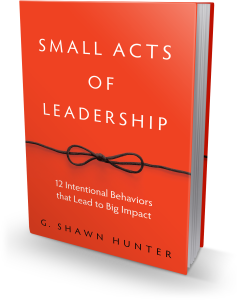Want to Be Happier? Live Longer? It’s Not Kale and Exercise.
“The importance of friendship has been hiding in plain sight.”
– Lydia Denworth, author of Friendship: The Evolution, Biology, and Extraordinary Power of Life’s Fundamental Bond
Our daily priorities often go like this: family, work, exercise, chores. And then if there’s any time left over, or cracks in the day, we fit in a moment with a friend to have a coffee, or take a walk together. Our friendships, while important to us, sometimes come lower in our priorities. Rethink that.
Friendship is as important as diet and exercise for our mental and physical health. We often think of friendship as enjoyable, nice, and comforting, but we don’t often think of friendship and social connection as being essential to our ability to thrive. We don’t think of our friendships as critical to boosting our immune system or staving off long-term mental ailments.
Chasing health and longevity, we puree kale smoothies, listen to meditation apps, read Brené Brown, and wake up for morning boot camp classes. But the secret sauce to long term mental and physical health might not just be the planks you do in your workout class, but the friends you see and spend time with.
According to author Lydia Denworth, the reason friendship and social connection has largely been ignored by scientists, until recently, is because it has been hard to define what friendship is. Scientists like to measure things they can define, and pin down. In her research, Denworth interviewed biologists and anthropologists, and found that their agreed definition of friendship is a relationship which is stable, positive and reciprocal.
Friends make time for each other consistently, leave meetings feeling buoyed and uplifted, and have their past interactions to build upon. In this way, the layers of a friendship are built over time such that with each repeated contact we get to reinforce past interactions, and then add new stories, ideas and values to edify one another.
In the 1950s, John Bowlby theorized the idea of maternal imprinting and the power of child contact and connection for their psychological health and growth. He was ridiculed and stopped attending professional conferences. The prevailing parenting philosophy at the time was that love and affection to children would weaken them. Mothers were advised not to pick up their kids. They were told it would soften and spoil them.
His work led to inquiry in the 1970s, to what happens after those first formative years, when we learn trust, loyalty, and cooperation, the building blocks of friendship. In this same era researchers started studying the intersection between the strength of social networks and overall health.
Fast-forward to today, Denworth points out that we now understand friendships are absolutely critical to our overall health and well-being. She expresses some concern that, as parents, we might over emphasize academic achievement or athletic performance, when, in fact, what really matters to the health of our children is the strength, and reciprocity, of their friendships.
Millennials today state that their #1 long-term goal is more money and less debt. Yet we know the answer to the question of what gives us long term health, prosperity and personal happiness is readily available. The Harvard Study of Adult Development has tracked the life of 724 men since 1938 – their careers, their marriage choices, their health, their wealth and achievements (or lack of), and importantly, how they self-describe their happiness and fulfillment.
For over 75 years, both Harvard graduates, and impoverished children from the inner city of Boston who did not have the privilege and opportunity of the Harvard participants, participated in this life-long study. According to Robert Waldinger, currently the lead researcher on the project, the results are clear.
People who are more socially connected to friends, to family, and to community, are happier, physically healthier, and live longer than people who are less well-connected. Period.
– Robert Waldinger, Harvard Medical School
In the 40s and 50s of our lives we tend to lean in to work, chase promotions, maximize our retirement contributions, fret over our kids’ college applications, and worry about our parenting skills. Yet the best predictor of how healthy and happy we are in our 80s is the strength of our social network in our 50s.
Call a friend. Schedule time with them. Then load the dishwasher.
- ____________________________________________________

In other news, our son and I bicycled across America with two other dads and their teenagers. We published a new book about it called Chasing Dawn. I co-authored the book with my cycling companion, the artist, photographer, and wonderful human jon holloway. Buy a copy. I’ll sign it and send it to your doorstep.



